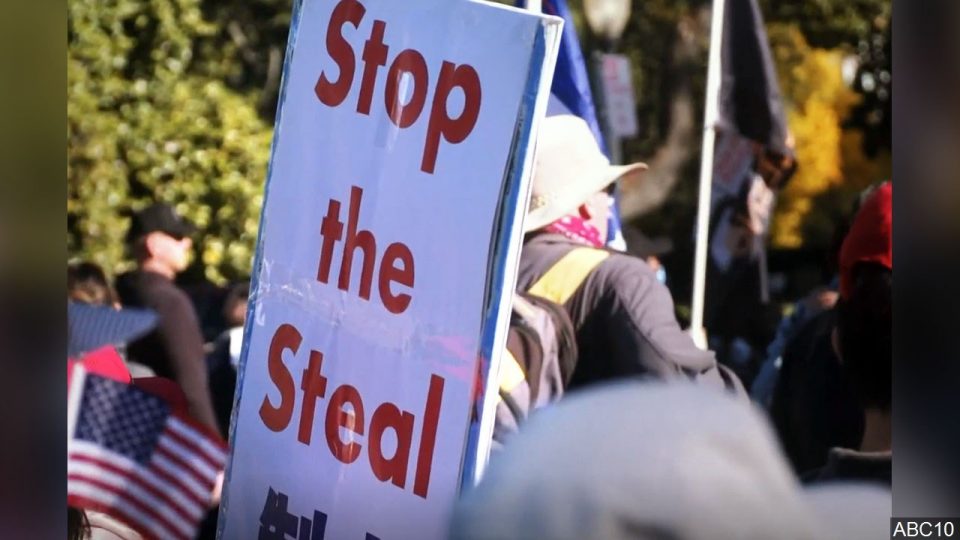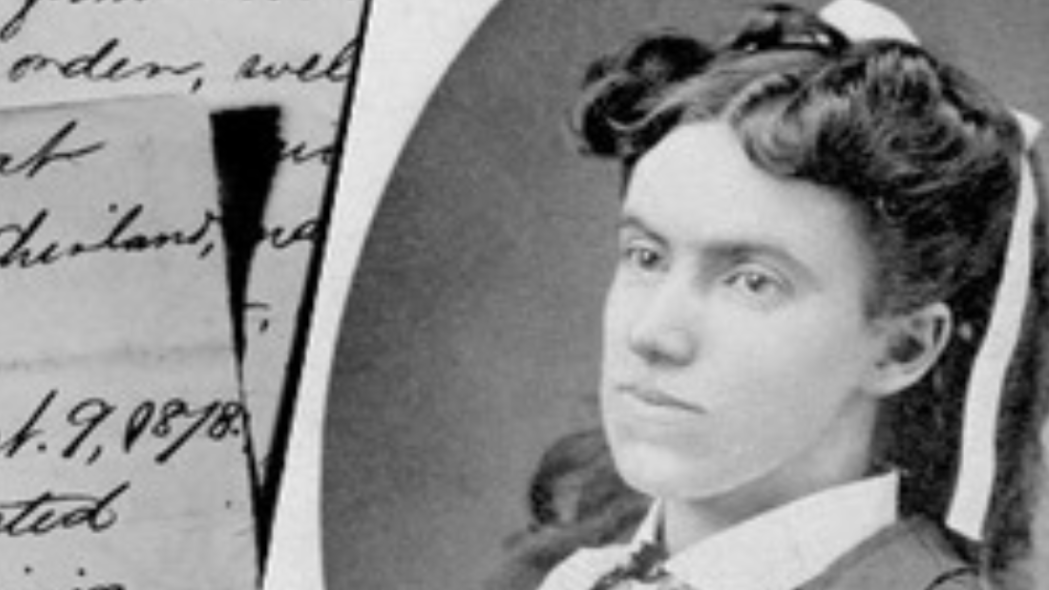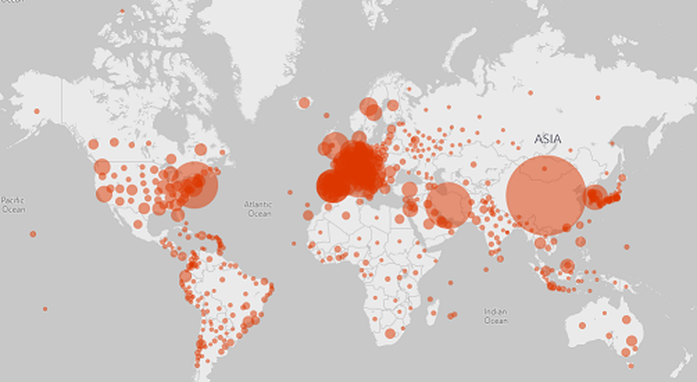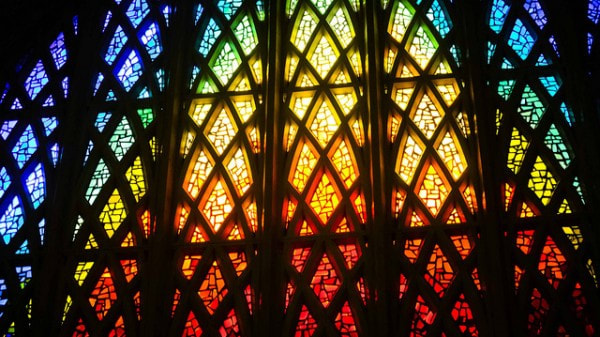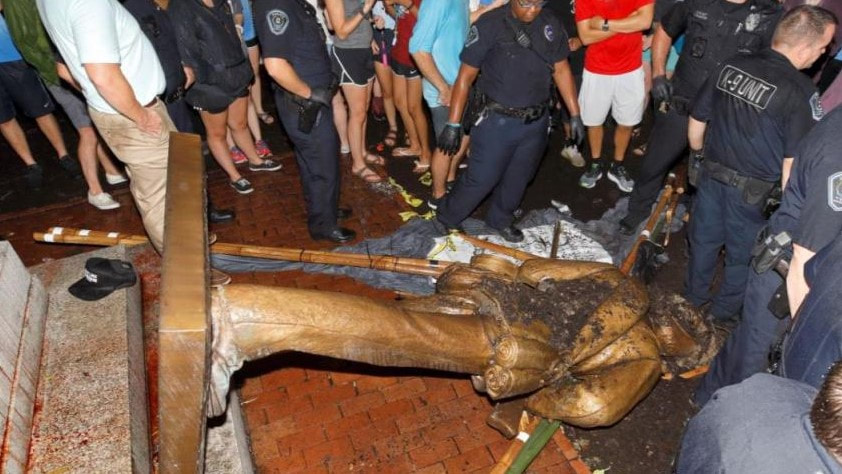|
I’ve had a number of conversations recently about conservatives from blue states moving en masse to red areas. Here are some takeaways: 1. Honor the culture you’re moving to and seek to reinforce it.
Remember, you’re an outsider. Others sacrificed to make the area hospitable to you and their progeny deserves a cultural inheritance. 2. Seek the good of the region you’re living in.
You’re living somewhere new now and you must make decisions that help shape your identity to conform. 3. Never, never, never talk about how much better it was back home - at least to locals. This encourages resentment and discourages your own family. Remember, you left there. Say you miss back home but are happy to be in the new place you’ve moved to. If it doesn’t have mountains or restaurants or something else, it was worth giving up for the benefits of the new area.
1 Comment
I've probably spent 10 hours reconstructing what happened at the Capitol. Censorship has made this process more difficult, but I think I've gotten about as far as I'll get at this point. Unpreparedness and chaos are both good words to describe what happened inside the Capitol. There were members of radical groups, including some sympathetic with Antifa who were present and did help instigate along with angry Trump supporters. Hundreds of Trump supporters made it into the Capitol. The police were totally unprepared. In some instances the police let protestors near or inside the Capitol. In others, they retreated after struggling with protestors. The vast majority of the those who made it into the building were angry but peaceful, staying in walkway areas, picking up trash, etc. Many thought they were allowed in. Some of this is due to the fact they were not at the front of the line where, if there was a struggle, few witnessed it. Police officers giving directions and allowing selfies to be taken with protestors, etc. also contributed to this sense. It is important to realize that those in the front at the Capitol, where agitation occurred, could NOT have been present for all of Trump's speech, and most were probably not present for any of it. Those who listened and followed Trump's instructions arrived much later. Trump called for a peaceful march, but some mainstream media reported that Trump supporters were storming the Capitol before his speech was even complete. The most loyal Trump supporters (who cared about his words) were not present for any of the initial confrontations. The motive of the majority, as represented in video testimony, seems to be a somewhat naïve and sincere attempt to inform their representatives to not certify fraudulent electoral votes. There was a very small, but evil minority who stole items and disheveled offices etc. The hundreds of thousands outside the Capitol, of which I was a part, had no idea of what happened inside. If the goal of the majority had been to have an "insurrection" there would have been one, and no one present could have stopped the crowd. The crowd did NOT want that. This is further reinforced by the fact that many videos show Trump supporters tackling or confronting individuals they believe to be Antifa members who are damaging property outside the Capitol. We witnessed no property destruction and neither did hundreds of thousands. I can't speculate about why most riot police were hours late, why Capitol police were ill prepared, and allowed and directed protestors to enter in some instances, why some of the outfits (helmets, tactical gear, etc.) worn in videos by protesters weren't present at the Trump rally, why the riot police who were present stood down, why multiple sources claim "Antifa" or some kind of group of radicals came from a different direction than those streaming in from the Trump rally (and the list goes on). But, there are some conclusions I CAN reach that do not fit the media narrative. 1) Trump did not call for violence. He called for peace in his speech, and again in a video Twitter deleted. 2) 98% of attendees had no participation or knowledge about what took place inside. 3) Most of the hundreds who made it inside had no desire to harm anyone or anything and remained civil. 4) After a young lady, who was not behaving violently, was unexpectedly killed by an officer those inside left and seemed both shocked and surprised violence occurred. 5) The lack of preparedness and incompetence on the part of whoever(s) controlled law enforcement can only be due to extreme negligence or evil intent. 6) Condemning Trump or his supporters as a group for what happened is simply lying. Editor's note: Charlotte Moon of Virginia was a Southern Baptist missionary in China for forty years, 1873—1912, She was a prime leader in establishing Southern Baptist missionary mission and since 1888 the Southern Baptists have had an annual Lottie Moon Christmas Giving for missionary work. It is no secret that Southern Baptist leaders carry a large burden of white guilt for historic situations and symbols they consider insensitive to Americans blessed with African lineage. They are especially ashamed of their own denomination's history. And, interestingly, they think they somehow have the power to change the legacy of their self-assessed complicity through lamentation and other measures (a very "white" assumption from the perspective of Critical Race Theory advocates, if there ever was one). In 1989, the Convention issued a statement against racism and bigotry. They apologized for slavery in 1995. In 1996, they made a statement condemning arson in African American churches. In 2007 they denounced the Dred Scott Decision. In 2015 there was another statement on racial reconciliation. The next year, they issued a statement against the Confederate Battle Flag. In 2017, the Convention adopted a resolution against “Alt-Right White Supremacy.” In 2018, Danny Akin, the president of Southeastern Baptist Theological Seminary sponsored a resolution which, among other things, condemned the first president of the convention, William B. Johnson for promoting slavery in his inaugural address. Johnson's crime concerned his disagreement with the Mission Board in Boston, which "had placed itself in direct opposition to the Constitution of the Convention" by disqualifying slave-holders from becoming missionaries and had "failed to prove—That slavery is, in all circumstances, sinful." This resolution failed amidst the crowded slate of resolutions also condemning some form of, you guessed it, racism. The Convention adopted a resolution against using the "Curse of Ham” as a justification for slavery, and another statement condemning racism. Add to this the various statements written, sponsored, or supported by Southern Baptist entities and one begins to swim in a sea of anti-racist statements all attempting to once-and-for-all rid the Convention of, as Al Mohler likes to call it, “the stain of racism.” The latest attempt to use racial animosity as a pretext for societal revolution has afforded Southern Baptists yet another opportunity to condemn one of their most cherished subjects—racism. Prominent SBC pastors like Thabiti Anywabwile and David Platt encouraged marching with Black Lives Matter. The president of the Convention, J.D. Greear, called for the retirement of the “Broadus gavel”—deemed unholy for having been the unfortunate block of wood to have been in contact early on with a slave-holder and Confederate supporter. The Mississippi Baptist Convention took it upon themselves this week to condemn the Mississippi State Flag for its symbolic Confederate imagery. As advocates of cheap bravery rush to show solidarity with the forces of revolution and obtain their unearned “pat on the head” from media elites, one wonders where this will all end? Perhaps, Southern Baptist comrades should showcase their fidelity to the revolution by demonstrating some, you know, REAL sacrifice. It will be easy for the scoffers and "exvangelicals" to see through token measures meant to placate other comrades. However, what if the SBC were to make a financial sacrifice for their oppressed minority brothers and sisters made in the image of God? What if Southern Baptists eliminated the Lottie Moon offering for the racism it is! Think about it. Lottie Moon was born into a "fifteen-hundred-acre tobacco plantation." Her father "was the largest slaveholder (fifty-two slaves) in Albemarle County" Virginia. Lottie never, that we know of, apologized for her privilege or her family's complicity in holding slaves. In 1875, Lottie Moon said "Where the Caucasian goes, he carries energy and an inferior race is aroused by the contact." In 1876, Moon claimed that “self-respect” compelled her to reject any potential “decision of any Chinaman or body of Chinamen” to determine the place of her ministry. She likened such an affront to an “African church in Richmond” telling Dr. Warren where he could live. (Send the Light, 162) Moon was most likely referring to Dr. Edward Warren, who had been the medical inspector of the Army of Northern Virginia. Lottie Moon’s sister, Oriana Russell Moon Andrews, had served the Confederate Army as a nurse under Warren. Also in 1876, Moon talked about another missionary, Mrs. Holmes, who didn't want to move and abandon her "duty to these poor heathen," but knew her son, Landrum needed to go to the United States. The boy would likely live with Methodist relatives "Northern in political sentiment," an arrangement whose influence Holmes was “not willing to subject her boy to.” Moon sought alternative arrangements for the boy to help him avoid what to her was an understandable negative situation. (Send the Light, 35) In addition, Moon said Chinese funeral processions contained "barbaric pomp and show" in 1884. Two years later she proclaimed, concerning China, "The life here as we Western people consider life, is exceedingly narrow & contracted. Constant contact with people of a low civilization & many disgusting habits is a trial to one of refined feelings & tastes." In 1907, Moon opined that a large “Reunion of Confederate veterans” must have been “pleasant.” (Send the Light, 425) This cursory sketch of some of Lottie Moon's views make it clear that if Southern Baptists want to truly show their loyalty to the spirit of the age, they will disband the Lottie Moon Christmas offering. As an added bonus, perhaps they should return 1.5 Billion dollars in funds collected in support for their colonization work they refer to as "missions." Western male Christians, exploiting the legacy of a "racist" white female, have tried to dominate the minds of brown-skinned members of minority religions for far too long. Mr. Greear, tear down your idol. Cancel Lottie Moon. This piece was previously published on Conversations That Matter on June 23, 2020.
I'm noticing progressive evangelical friends of mine are coming down on the "common good" side of this whole COVID-19 debate. Essentially, whatever will save lies is necessary regardless of financial cost or threats to personal liberty. Draconian measures must be taken by modern states NOW because we COULD possibly have extremely high death rates. On first glance, this seems to make sense. After all, who wants to argue that death is a fine thing! Thus the knee-jerk lock-downs progressively being implemented in some areas. However, there are a few basic assumptions one must accept in order for this argument to work. 1) First, one must accept the concept of the modern state. Communities aren't organic entities capable of making responsible decisions for themselves, but instead, national governments with "god-like" control and abilities are preferable. 2) Second, one must assume it is always necessary to act as if a potential worst-case scenario will take place. 3) Third, one must presuppose that individual human volition in assessing risks and making decisions is irrelevant. 4) Fourth, one must believe that modern states will necessarily act in the best interest of the people that live within them by not pursuing harmful objectives simultaneously. 5) Fifth, (and this is the sticky one!) one must assume alleged "experts" are in a better position to make collective decisions than non-experts. 6) Sixth, one must assume an expanded role of government into making ecclesiastical and familial decisions in a non-wartime setting OR assume that the principles at work in a combat situation are also at work in the case of a pandemic. I will very briefly touch on each of these. The idea that it is preferable to have a modern state guaranteeing abstract benefits such as liberty, equality, etc. on a scale as large as many are today is an entirely new concept in the history of the world. It is assumed by just about every millennial and most baby-boomers for a variety of reasons among which are the ideas that egalitarian participation, secular notions of human rights, and hedging against the threat of other modern-states is important. The problems are: A) Modern states have the worst track records with human rights violations because of the scale on which they function. The egalitarian tendency creates a situation in which there are no intermediate hierarchies between the power of the state and lesser magistrates and voluntary associations. They also inevitably impose a kind of state atheism in their pursuit of pluralism. Because decisions are not made on a human scale, they tend to be impersonal. B) Modern states are relatively new, and if we are the use the logic currently on display in how to handle a virus, they are relatively untested, which is a good reason to not rush to think them preferable. The idea that a modern state must react against a worst-case scenario, could easily apply to all kinds of threat to human life. Because something is possible or, even probable, hasn't customarily meant the state imposes itself on to local municipalities or individuals. For example. During the winter, local authorities generally shut roads down AFTER the threat has presented itself by agreed upon local customs. Having lived in both the North and South I can certify that customs differ from place to place on whether or not weather conditions permit safe travel. Up to that point, individuals are free to travel at THEIR own risk. There COULD very likely be a 40-car pile up, and sometimes there is. But, this is assumed to be a calculated risk that drivers undertake when they CHOOSE to drive. The modern state does not shut down roads simply because of the POSSIBILITY that snow may come, and they certainly don't do it in North Carolina just because the storm is worse in New York. Even during hurricanes when evacuation orders are instated, the right of individuals to stay in the local area is generally not infringed. South Korea's way of handling COVID-19 generally took into account this principle. Unless someone tested positive, and thereby threatened others (parallel this with someone losing their license for unsafe driving), the state would not restrict their general movements. If it becomes the modern state's prerogative to police the best possible course of actions that will make for the least amount of deaths, it could theoretically not only regulate, but eliminate common "unsafe" activities, even things like outdoor and team sports. We've already seen how totalitarians demonize football. Imagine outlawing it for the common good. The same principles being applied to the COVID-19 response could easily be applied across the board. In addition, let us suppose that an influential member of the hypothetical "Ban Football" bill happens to own major stock in the NBA or some other sport likely to benefit when sport's fans increasingly look for another team to support. This gets down to the problem of human depravity. All men are not angels, and though the function of government is good (punishing evil doers and promoting a righteous standard), the men who occupy the offices of the government are not special. They are men with the same weaknesses of all men. We are watching global elites, and recently the Democrats in their attempted stimulus package, demonstrate a wide range of ulterior motives from implementing the Green New Deal to adopting more globalism. Unrelated, yet harmful, measures are supported as necessary elements of a response to a virus. With every new plan that's proposed, a team of specialists stand behind it. Richard Weaver brilliantly de-mythologized the specialist in "Ideas Have Consequences" (1949). The weakness of the specialist lies in his or her narrowness and group-think with other self-proclaimed specialists. This does not mean specialists don't know anything. But, as Ronald Reagan said about liberals, they can know a lot "that isn't so." Think of how many scientists accept the philosophical underpinnings of Darwinism or the politically-driven "Global Warming" narrative. It is in the best interest of governments, and those they pay, to expand their power and influence. It is in the best interest of small business owners and citizens to get from government a return on their investment and no more. These interests, constantly in conflict, influence decisions because, like politicians, specialists are people too. The narrow lane government was traditionally afforded in Anglo-American society involved punishing crimes, regulating international commerce, and maintaining a military in wartime. During war, it has always been understood, throughout every culture, that the ultimate objective of winning may sometimes clash with personal property (though even in those situations, it has been understood in Anglo-American culture that property owners ought to be compensated, even if at a later time). The literal physical destruction of lives and property and the survival of a civilization usually led to cooperation with other societal institutions. It is impossible to set the time and place of an attack, when in the defensive, in such a situation, and this is understood. In the current debacle, individuals, families, churches, and businesses are being infringed upon, not because their actions are endangering others, but because it is unknown whether their actions could possibly endanger others. The danger this poses is the precedent it sets moving forward if the national government were to accept military powers. If fighting a virus is the same as World War II, then where does that train stop? If we agree that under normal circumstances the government may not lock-down the entire country, and we agree war-time is the only appropriate time to lock down certain areas for justifiable reasons related directly to war time logistics (setting up battle equipment to stage an attack or defense, etc.) or direct threats (i.e. blackouts etc.), then a pandemic does not fit the bill. However, if we classify the pandemic as a war, we've just opened Pandora's box and given it to the modern state. One might object that these musings fail to take into account the realities of modern life, which would actually mean we're right back where we started. Are modern states preferable? It should come as no shock to anyone thinking straight that the modern state does not have its own resources. Resources are produced by men and women across the country. Is it possible for those resources to be arranged in such a way (as they once were) to fight a pandemic on a more accountable and efficient local level which will also preserve liberty? As we enter this brave new world these are some of the questions not being debated, because, for most of us, our minds have already been made up for us. This piece was previously published at Conversations That Matter on 3/23/2020.
One of the reasons Christians have fallen prey to a social justice narrative is a previous capitulation to humanist ethical categories imposed on Christian concepts. Most of these shifts predated the current movement, but laid a linguistic foundation for it to succeed. For example: Where does “the sin of racism” rank among biblical categories for sin? Racism, as it was defined, represented sin as it stood for arrogance on the basis of ethnicity. Unfortunately, biblical categories like “arrogance,” “pride,” and “partiality,” in their textual contexts became less used in favor of the catch all, and increasingly harder to define, “racism.” Is racism a preference, attitude, action, idea, or innate characteristic of privilege? If someone is romantically attracted to only certain ethnicities are they racist? If someone benefits from alleged systems of oppression without knowing it, are they racist? The word is easily untethered from biblical sin categories, yet many Christians seem to insist it is among the chief sins, along with misogyny, intolerance, homophobia, and general bigotry. In fact, these sins are so evil that, like the apostle said, it is a “shame” to even “speak of them.” You will not find Christian accountability groups for recovering racists or misogynists, let alone these sins numbered with the church prayer request list. Pornography and alcoholism, actual biblical sins that have been redefined as “diseases,” are even more acceptable. Behind the etymological war stand two worldviews. Both compete to define man’s great problems. One says man’s problems arise from internal evil. The other, that they come from external inequities. Christians have increasingly confused symptoms for diseases, and accepted the egalitarian scheme for addressing man. This is the essence of today’s social justice. It will be the nature of tomorrow’s socialism. Most self proclaimed Christians will accept the second because they’ve allowed the definitions and terms of the first to replace biblical definitions. The study of history cannot be neatly contained behind the tall foreboding doors of an ivory tower nor swept under the rugs of dusty corner offices housing stacks of paper. It bleeds into other fields as it serves to inform both individual and group identity. It gives context to the current world and helps one understand their place in it culturally, socially, and spiritually. The modern disinterest in studying history has more to do with a lack of identification with the subject matter presented than it does an actual disdain for stories of the past.
Joyce Appleby, a former history professor at UCLA, sought to explain this controversy as a somewhat unsurprising development given the collective nature of history and the cultural change occurring in American culture. For example, Appleby, in discussing the inclusion of African-American experiences into the greater story of America, tells us that “incorporating these details of the African-American experience in national history . . . proved almost impossible, because they represented such an indigestible element in the tale of American democracy (Appleby, Telling the Truth About History, 299). In other words, the traditional consensus would not stand for African-American history that shown poorly on the greater narrative. Part of Appleby’s solution for attracting interest in the subject of history while avoiding the discarding of traditional concerns was to democratize the subject along pragmatic lines. A moderation intended to include newer groups who have been allegedly left out of the American story while still maintaining an overall group cultural identity was the goal. Appleby’s solution comes across in some ways as overly naive and optimistic. If her assessment is accurate the question then becomes, “Are disenfranchised groups desiring their cultural stories to be incorporated into the larger American story?” Perhaps this is taken for granted since the battle Appleby may have been observing was being played out in board room tug of war matches located in American history textbook manufacturing plants. It would be nice to think that everyone could “just get along,” but this is rarely the case over something so fundamental to national identity. The question is not asked, “Why do Irish, Italian, Jewish, German, and perhaps many Asian cultures not seem (broadly speaking) to have the same problems identifying with the American story as other minority groups, though they experienced varying degrees of bigotry as well?” Could it be that certain groups are not interested in history, especially American and Western history, not because they do not feel included, but rather because they fundamentally have a dislike or disagreement with the country in which they reside. They simply do not wish to identify. Perhaps the common ground with one’s culture necessary for even forming an identity is not present. It is likely that the only exposure to American or Western history known by many is a negative. Since the divide in this matter is also generational, this would certainly suggest that the proposed solution will not work. Appleby may as well have been trying to un-poison a well in that case. So how can history be made more relevant? Most humans do not wish to know a great deal about something they find offensive. Repulsion gives birth to avoidance. After all, if one knew their great-grandfather was a horse thief, drunk, and a swindler, how much more about their grandfather would they want to know, and would they ever make one of their children his namesake? If parents are not engaged in civic duties, families are too broken down to impart identity, and Hollywood produces art that vilifies American heroes, teaching names and dates will not suffice to cultivate an interest in a topic thought to stink in the first place. Though it be an up-hill battle, perhaps the only option available to the historian is to first become the philosopher. If the values passed down through law, legend, and lore are castigated as fundamentally offensive, then the values themselves are what need explanation and defense first, not the stories that flow from them. If one thing remains clear it is this: All people use standards by which to judge those who preceded them. If the theme of American history is to be “how the people of the United States did terrible things and continue to do terrible things,” it would not come as a surprise that such a course would need to be mandatory in order to have any participation. The more moderate alternative (hinted at by Appleby), “how the people of the United States failed to live up to their values but are getting better” is not much of a rallying cry either. If the standard of measure for judging the past happens to be egalitarianism, there does not seem to be any way of recovering an interest in American history as a identity marker. Its main function will most likely be sacrificed on the alter of identity politics. This article was originally published on WorldviewConversation.com on 9/3/2018. "What Happened?!" |
AuthorJonathan Harris lives with his wife in Lynchburg, Virginia. He has a B.A. in history from Thomas Edison State University and an M.Div. from Southeastern Baptist Theological Seminary. Jonathan enjoys outdoor activities (he is a member of the Catskill 3500 club, an honor he values more than any of his academic accolades), playing guitar, and fixing furniture. Jonathan, growing up in a the home of a pastor, gave his life to Jesus Christ at a young age and has been involved in music and college ministry since he was 18. |
Proudly powered by Weebly


